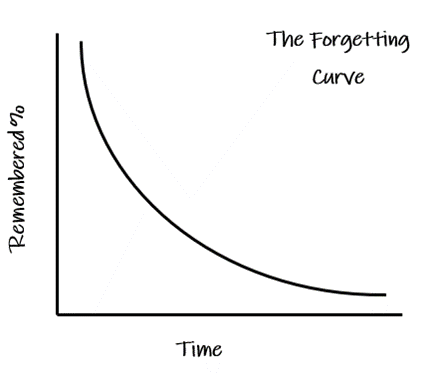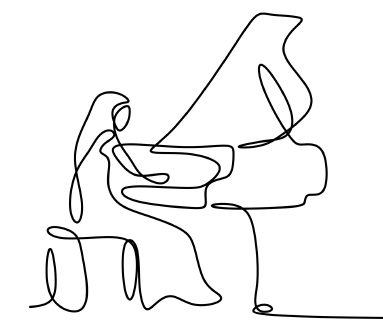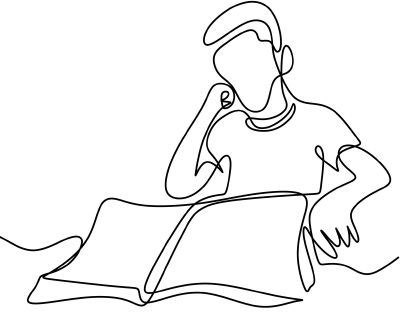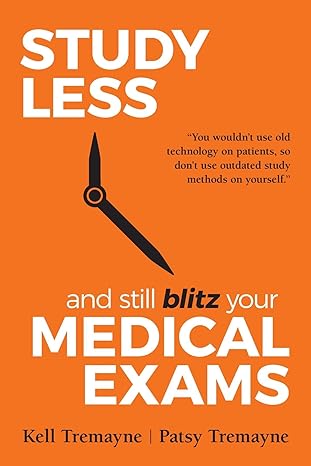- Home
- Study Smarter
Study Smarter Not Longer: How to Study More Effectively for Medical Exams
Because your brain isn’t a sponge—and your time is too precious not to learn how to study more effectively.
Welcome to the science of studying like a strategist, not a martyr. If you’re a doctor preparing for high-stakes exams—you’ve likely found yourself rereading the same guidelines, highlighting entire chapters, or cramming until midnight only to forget everything by morning. You’re not alone. But there’s a better way to learn how to study more effectively.
This page is your launchpad into the most powerful, evidence-based techniques for mastering clinical knowledge, retaining key concepts, and performing under pressure—without burning out. It’s not about doing more—it’s about knowing how to study more effectively so you can pass your exams with confidence.
Why “More Study” Isn’t the Answer
You’ve been told to study every spare second. But science—and experience—say otherwise. Long hours of passive reading and endless note-taking lead to burnout, not brilliance.
As our book puts it, “Most people don’t know how to study.”
This page introduces smarter, science-backed methods that help you retain more, stress less, and actually enjoy the process. It’s your guide to discovering how to study more effectively—especially when the stakes are high and time is limited.
How To Study More Effectively: Your Toolkit
Spaced Repetition
 |
“Each time you revisit the content, the benefit is that you are flattening the forgetting curve.” Spaced repetition is the antidote to forgetting. Instead of cramming, you review material at increasing intervals—just before your brain is about to forget it. This strengthens memory and makes learning stick. Research shows that spacing out your study improves both retention and transfer of knowledge. Think of it like letting the mortar dry between bricks—you’re building a wall that lasts. This is one of the most powerful ways to learn how to study more effectively. |
Active Recall
 |
Active recall means testing yourself before you feel ready. It’s uncomfortable—but that’s the point. By pulling information from memory, you strengthen neural pathways and expose gaps in your knowledge. Pedro, a basic physician trainee, passed his exams after switching from passive reading to active recall. “He realised it was good practice for viva exams as he became used to the sound of his voice.” This technique is a cornerstone of how to study more effectively. |
Deliberate Practice
 |
This isn’t just about doing more—it’s about doing better. Deliberate practice targets your weak spots with focused, feedback-driven effort. It’s how elite performers—from surgeons to athletes—get better, faster. The book compares it to learning piano: “You don’t improve by playing songs you like. You improve by practising the hard parts.” The same goes for your study—and for mastering how to study more effectively. |
Study Scheduling
 |
You don’t need more hours—you need a better plan. Study scheduling helps you protect time for high-quality study, rest, and life. Christine, juggling full-time work and a baby, found peace and productivity through a structured schedule. “She was able to be more mindful when playing with the baby… and studying didn’t impinge too much on other aspects of her life.” A good plan is freedom—and a key part of how to study more effectively. |
Avoid Cramming
 |
Cramming overloads your short-term memory and sabotages long-term retention. It’s a high-stress, low-yield strategy that leaves you exhausted and underprepared. The book shows how doctors like Millie and Ahmed burned out from overstudying—and turned things around by doing less, not more. “Short bursts of intense focus make the learning stick.” Cramming is out. Smart study is in. This shift is essential to learning how to study more effectively. |
Testing Before Studying
 |
It sounds backwards, but testing yourself before you study actually improves learning. It creates a mental framework that helps you absorb and organise new information. In one study, students who tested first retained 50% more than those who didn’t. Our book calls this the “test-study-retest” method—and it works. “You will have better overall results if you test first and struggle to think of the answers.” It’s a surprising but powerful way to discover how to study more effectively. |
Real Story: Pedro’s Turnaround
Pedro thought he was doing everything right—long hours, detailed notes, constant reading. But he failed. After switching to active recall and spaced testing, he passed with confidence. “He was quite enthusiastic about active reading… and realised it was good practice for viva exams.” His secret? Less time, more strategy. He learned how to study more effectively—and it changed everything.
What You Can Do Right Now
When you're preparing for medical exams, the sheer volume of content can feel overwhelming. But the key to progress isn’t doing everything—it’s doing one thing well. If you’re wondering how to study more effectively, the answer starts with choosing just one evidence-based technique and putting it into practice.
Why Just One?
Trying to overhaul your entire study method overnight can lead to frustration and burnout. Instead, focus on one proven strategy—something simple, actionable, and backed by science. This approach builds momentum and gives you a clear sense of what works for you.
Here are a few powerful techniques you can start with today:
- Active Recall: After reading a topic, close the book and try to explain it out loud or write down everything you remember. This strengthens memory and highlights gaps in understanding.
- Spaced Repetition: Use a flashcard app or calendar reminders to revisit key concepts at increasing intervals. It’s one of the most effective ways to retain clinical knowledge long-term.
- Pretesting: Before diving into a topic, answer a few questions—even if you get them wrong. This primes your brain to absorb and organise new information more effectively.
- Deliberate Practice: Identify a weak area (e.g., ECG interpretation, pharmacology) and spend focused time improving it. Use feedback, repetition, and reflection to guide your progress.
Make It Stick
Once you’ve picked your technique:
- Apply it to a real topic you’re studying this week—something relevant to your upcoming exam.
- Reflect on the results after one or two sessions. Did you retain more? Did it feel more engaging?
- Adjust and repeat. If it works, keep going. If not, try another technique next week.
This is how you begin to study more effectively—not by doing more, but by doing better.
These evidence-based strategies are your roadmap to mastering how to study more effectively—not just for passing exams, but for becoming a more confident, capable doctor.
Start small. Stay consistent. Trust the science.
Let’s get to work.



